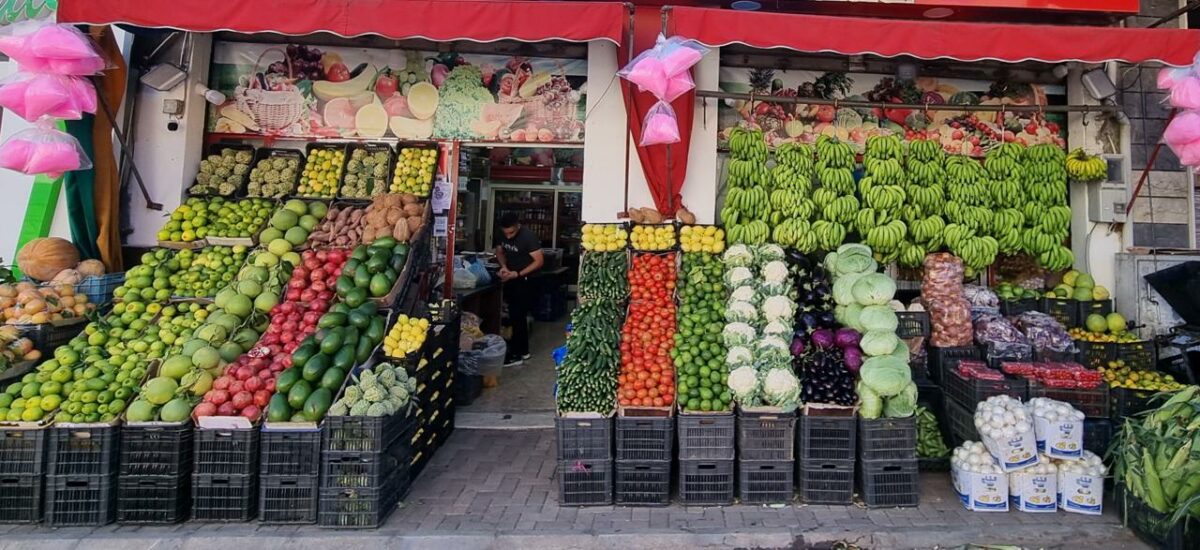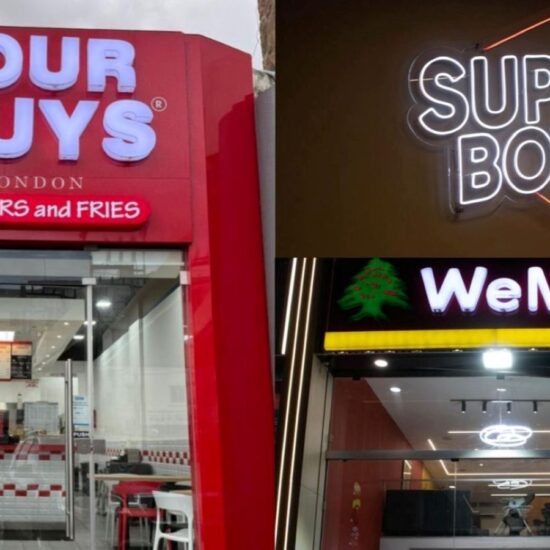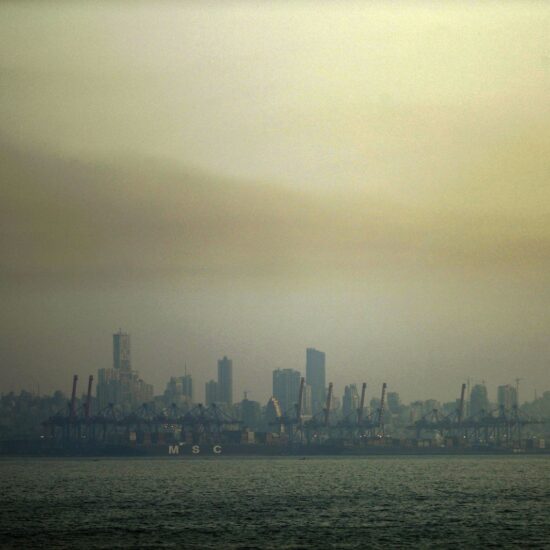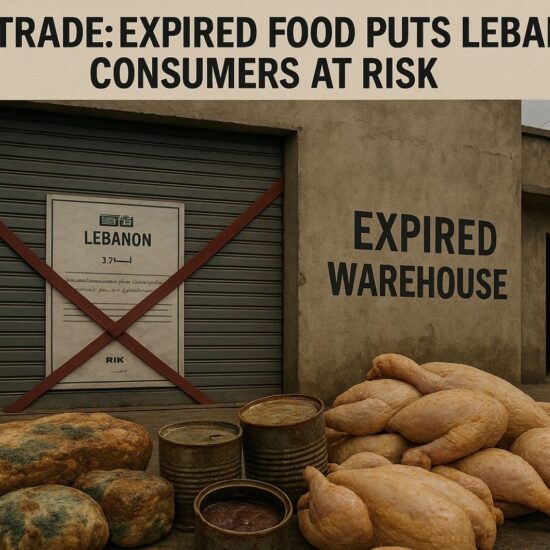
Amid Lebanon's economic turmoil, skyrocketing food prices and currency devaluation have deeply impacted Ramadan traditions, leaving families and refugees struggling to afford basic iftar meals.
Amid Lebanon’s prolonged economic crisis, where the currency has seen a drastic devaluation of around 95 percent, many Muslim families find themselves grappling with added challenges as they strive to secure essential food supplies for iftar, the evening meal marking the end of their fast during Ramadan. With food prices skyrocketing by 208 percent, the festivities have been soured for many struggling Lebanese.
Lebanese economist and analyst at Beirut Arab University (BAU), Wajih Mhanna, acknowledges that amid the multifaceted crises, Ramadan is not a time of lavish meals and celebrations but rather one of stress and struggle for people from all walks of life. “Most notably the crazy rise in food prices, which affects the spirit of this holy month in the whole country, especially for people with average income,” Mhanna added. The Food and Agriculture Organization of the United Nations (FAO) and the World Food Programme (WFP) have previously classified Lebanon as one of the world’s hunger hotspots, as more than half of the population needs assistance to cover their food and basic needs. Mhanna, like other economic experts in the country, stressed the need to move immediately towards the election of a new president of Lebanon and the formation of a government with full powers, so that it can seriously implement the rescue program, warning of the danger of the continuation of the current crisis on the future of the country.
The economy and currency of Lebanon have experienced a rapid decline, diminishing the purchasing power of its residents with households finding it difficult to cover the costs of iftar due to skyrocketing food prices. Rayan Labban, a mother of three from Corniche Al Mazraa, told NOW that they previously hosted family and friends for iftar gatherings three to four times during the month of Ramadan. However, due to financial constraints, they can no longer afford to do so. She expressed how the financial crisis has robbed them of the ability to celebrate Ramadan and experience the joyous ambiance that typically accompanies this sacred month.
Since the onset of the financial crisis in 2019, Lebanon has faced severe challenges, leading to a drastic depreciation of the national currency by over 90 percent and pushing approximately 80 percent of the population into poverty. Throughout this crisis, numerous public sector workers have received meager salaries that fail to cover basic needs, while social assistance programs remain largely ineffective. The suffering of the people has been exacerbated by commercial banks imposing restrictions on withdrawing bank deposits, thereby depriving citizens of their long-standing savings.
According to Adnan Rammal, a representative of the trade sector in the Economic and Social Council, Lebanese individuals have had to adapt their consumption patterns due to the shrinking economy and declining wages. He explained that prior to the crisis, the average annual salary was approximately $10,000. However, it has now plummeted to about $3,000, resulting in a loss of about 60 percent of people’s purchasing power. Consequently, he predicted that both the quality and quantity of consumed items would decrease as a result. Ibrahim Daychoum, a vegetable seller in the Bekaa region, told NOW: “Since the commencement of the Christian fasting period, there has been a notable rise in vegetable prices, and it is anticipated that this upward trend will persist throughout the holy month of Ramadan.”
He mentioned that individuals who previously purchased a kilogram of vegetables now opt for only half that amount, while others resort to buying vegetables by the piece. Some even leave without purchasing upon knowing the price. The head of the Syndicate of Food Importers, Hani Bahsali, explains that the increase in the prices of goods is a result of the Red Sea crisis that has occurred. The syndicate calls on the municipalities to fulfill their duty in the villages and governorates, as they have local supervisory authority by the consumer protection law, to draw up records and refer violators to the judiciary. “There are 1,500 municipalities in Lebanon, and if each municipality recruits one person to monitor prices, we will succeed in our mission of regulating prices fairly,” Bahsali said.
Increasingly, families are forced to rely on food packages for Ramadan and the rest of the year, but NGOs are struggling to meet surging demand. According to Maya Terro, co-founder of FoodBlessed, an initiative that aims to tackle hunger and food waste in Lebanon, the current economic situation and worsening living conditions in the country are posing challenges to people from all strata during religious times like Ramadan. Many of the Lebanese locals are struggling to meet their basic needs, and taking on the assistance of NGOs like FoodBlessed has become a growing trend, particularly among larger households with numerous family members. Before the 2019 financial unrest in Lebanon, Labban didn’t think twice before loading her cart with a variety of groceries, including meat, cheese, chicken, fish, and dates, paying little attention to the costs. “Nowadays, we are only able to purchase a limited list of essential items,” she recollected sorrowfully.
Approximately one million Syrian refugees are currently bearing the brunt of the country’s economic meltdown. Around 90 percent of them live in dire poverty, as reported by the United Nations. Many refugees are indebted due to increasing food costs. In addition, health professionals have observed significant shifts in the dietary habits of impoverished families throughout Lebanon, with many of them skipping meals to manage the food shortage. Mohammed Abdullah, a Syrian who fled airstrikes and shelling near Damascus in 2014, has been working as a plumber in Bar Elias and has a family of six. He told NOW: “It is really hard to manage nowadays, we must cut down on everything, otherwise my salary will not be enough to afford food for the whole month of Ramadan.”
In the past, before Lebanon’s economic crisis, Abdullah’s wife would prepare a variety of Lebanese and Syrian dishes for Iftar that included poultry, salads, and pastries, along with dessert, but this year their iftar is limited to salad, a simple lentil soup, and grilled potatoes or plain rice. Sweets and poultry have disappeared from the menu as their prices have become increasingly out of reach. “Even the associations that used to provide us with food rations and iftar meals are barely doing so this year,” Abdullah said.
This stark reality underscores the profound impact Lebanon’s economic crisis has had on both its citizens and the refugee population, leaving many to face the holy month of Ramadan with heavy hearts and diminished hope.
Rodayna Raydan is a Lebanese-British journalist. You can follow her on Twitter @Rodayna_462
The views in this story reflect those of the author alone and do not necessarily reflect the beliefs of NOW.








